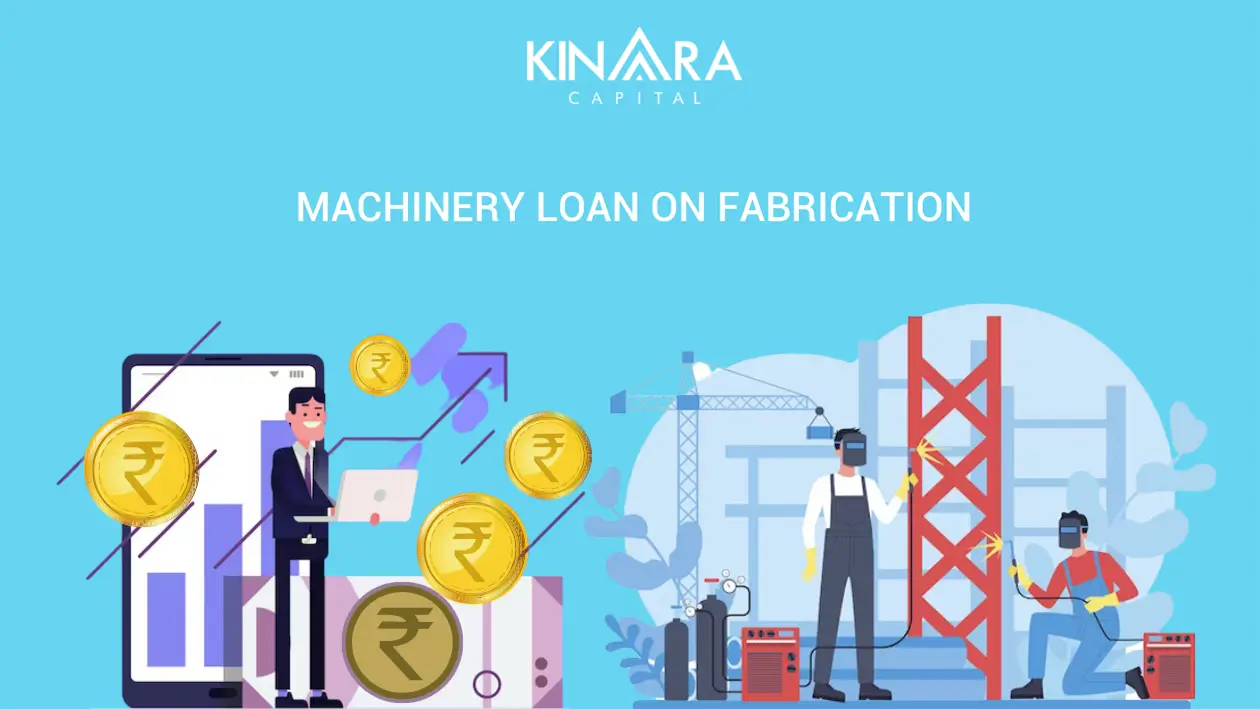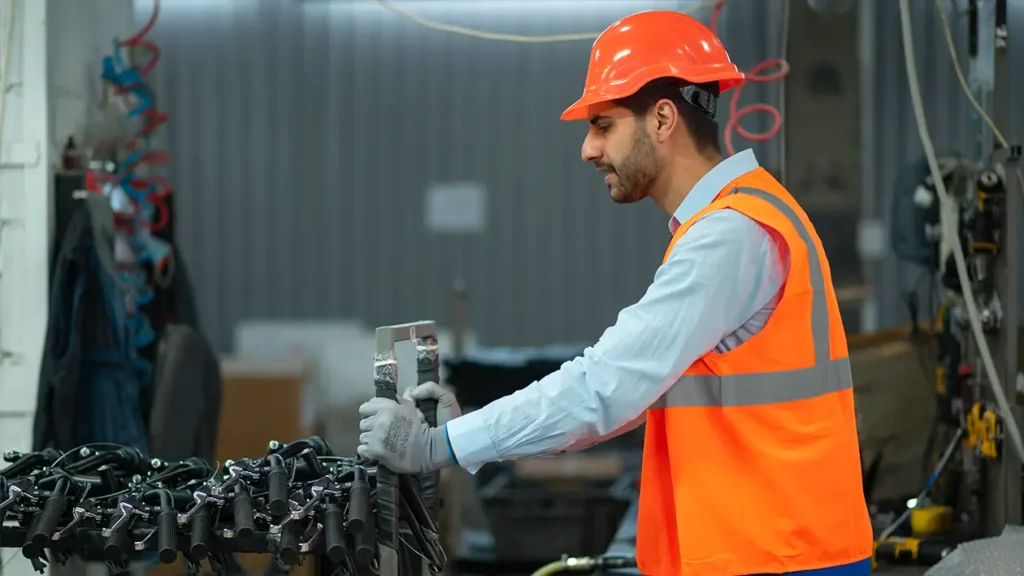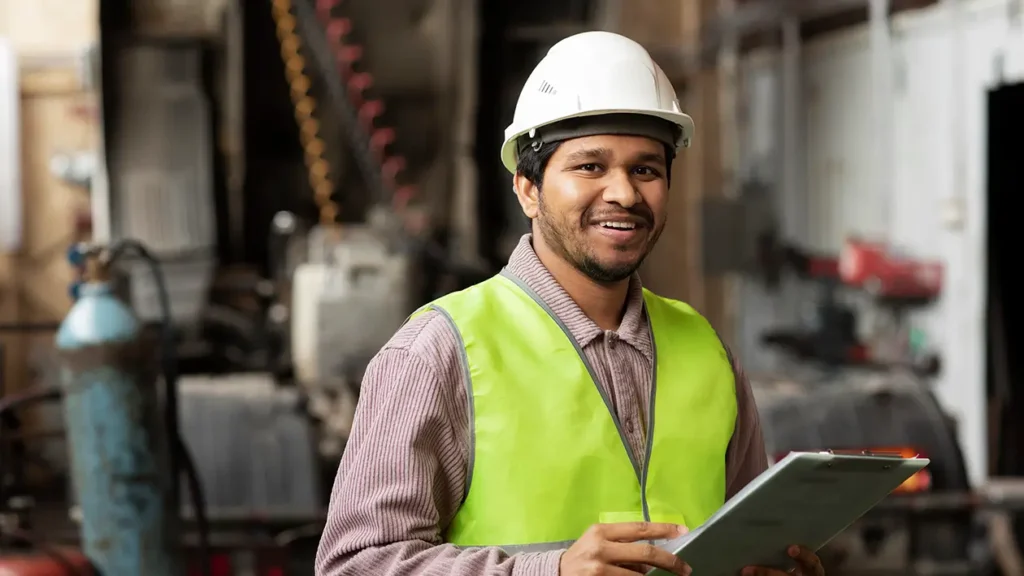
Metal fabrication is an indispensable and diverse service that plays a crucial role in various industries. From mining and energy to construction, automotive, transportation, and medical tools/appliances, metal fabrication is essential for the smooth operation of these sectors. So, what exactly is metal fabrication? Metal fabrication encompasses a range of processes that involve cutting, shaping, and moulding metal materials to create finished products. Unlike assembling pre-made components, fabrication starts with raw or semi-finished materials, transforming them into the desired end product. There are different fabrication manufacturing processes used depending on the type of metal and the specific product requirements. Fabrication can produce both custom-made and stock items.
When it comes to expanding small businesses and acquiring new machinery or metal processing equipment to meet production goals, financing such purchases can be a concern. However, there is a solution: machinery loans for fabrication. These loans are designed to support MSMEs by providing the necessary funds to acquire the equipment. MSMEs can ensure minimal downtime and continue production seamlessly by obtaining machinery loans.
Sometimes, MSME requires additional machinery or wants to upgrade its existing equipment. Machinery loans for fabrication offer financial support to make it possible. It allows them to invest in the tools and resources necessary for their business to thrive and meet growing demands. With the right machinery in place, MSMEs can enhance productivity, improve efficiency, and maintain a competitive edge in the market.
MSMEs can overcome financial barriers by utilising machinery loans for fabrication and propel their small businesses forward. It enables them to access the latest equipment and technology without straining their cash flow or depleting their working capital. Ultimately, machinery loans empower MSMEs to expand their operations, optimise production, and achieve their business goals in a cost-effective and efficient manner.

Strategic investment in advanced equipment yields transformative benefits by enabling employees to work more efficiently and alleviating them from manual and repetitive tasks. When businesses purchase new equipment that performs tasks at an accelerated pace, with enhanced safety and quality, it increases productivity and efficiency. Moreover, such equipment reduces waste, maintenance requirements, resource consumption, and the need for excessive human intervention. By embracing these advancements, businesses can achieve substantial cost savings.
Investing in equipment that streamlines operations and improves efficiency, empowers employees to accomplish tasks with greater speed, precision, and effectiveness. This, in turn, optimises overall productivity levels, allowing businesses to accomplish more in less time. Employees can redirect their efforts towards more value-added activities by reducing manual and repetitive tasks and fostering innovation, problem-solving, and strategic thinking.
Furthermore, adopting advanced equipment improves quality control, minimising errors and rework. Enhanced safety features contribute to a secure work environment, reducing the risk of accidents and associated costs. The reduction in waste and resource usage not only benefits the environment but also positively impacts the bottom line through cost reduction and improved sustainability.
It is crucial for businesses to recognise that productivity and efficiency gains are directly linked to significant cost savings. By investing in equipment that optimises operations and streamlines processes, businesses can eliminate bottlenecks, reduce downtime, enhance output, and achieve economies of scale. The cost savings can arise from various factors, including reduced labour costs, lower maintenance expenses, decreased waste disposal expenses, and improved resource utilisation.
Businesses, particularly MSMEs, that delay or overlook the purchase of new equipment risk losing customers and contracts to more proactive competitors. Investing in new technology equipment not only instils confidence in customers but also showcases a commitment to innovation and staying ahead of the curve. Similarly, acquiring advanced industrial equipment that offers increased speed or a wider range of capabilities can entice customers, positioning the business as a reliable and capable partner.
However, the implications of not investing in new equipment go beyond customer perception and reputation. Depending on the industry and type of company, the absence of updated equipment can severely hinder the ability to undertake new projects and deliver requested products and services. As customer demands evolve, businesses must adapt to meet these changing needs. With the necessary equipment, they may find themselves able to keep up with market demands, losing out on potential growth opportunities and limiting their competitive edge.
The decision to invest in new equipment is not solely about customer perception or reputation; it is a strategic move that directly impacts a business’s ability to compete, grow, and meet evolving customer demands. MSMEs that recognise the importance of staying up-to-date with equipment advancements position themselves for success by remaining agile, competitive, and capable of delivering exceptional products and services in today’s dynamic business landscape.
Ensuring workplace safety is paramount for businesses, and outdated equipment can present significant hazards even when properly maintained. In the event of an employee’s injury, the costs associated with workers’ compensation and related expenses can be substantial. This is particularly critical in industries such as manufacturing or construction, where accidents can have severe consequences. The potential for damage or loss can be far-reaching and have a profound impact on both human lives and financial stability.
Upgrading equipment not only addresses safety concerns but also contributes to a more secure work environment, reducing the likelihood of accidents and injuries. Additionally, modern equipment often incorporates advanced safety features and protocols, further mitigating risks and enhancing employee well-being.
It’s worth noting that certain equipment may utilise specialised packaging or specific materials designed to minimise the potential for environmental damage, aligning with sustainable practices and regulatory requirements. By prioritising the acquisition of updated equipment, businesses demonstrate a commitment to employee safety, risk mitigation, and environmental stewardship.
Furthermore, investing in new equipment can potentially lead to long-term cost savings by reducing workplace incidents, insurance premiums, and the associated legal and financial repercussions. They safeguard both the welfare of employees and the overall stability and prosperity of the business.
While some small businesses opt to lease equipment instead of purchasing it, there are drawbacks to consider. Leasing means a business becomes dependent on the leasing company, limiting the ability to make necessary updates or modifications to the equipment without their approval. Furthermore, they may have to rely on the leasing company for essential maintenance services. On the other hand, when a business owns its equipment, it gains the flexibility to make changes as required. If the equipment no longer serves its purpose, it can be sold without adhering to the restrictions imposed by a leasing agreement.
Moreover, owning equipment provides tax advantages. Businesses can often deduct depreciation expenses and claim tax benefits associated with owning assets. This can result in significant cost savings and improve the company’s financial position. On the contrary, leasing payments may not offer the same tax benefits and can be considered operating expenses.
By purchasing equipment, businesses have greater control over their operations, as they are not tied to the terms and limitations imposed by leasing contracts. They can make decisions based on their specific needs and goals, allowing for more strategic and tailored approaches to their operations. Additionally, owning equipment can contribute to the company’s overall asset value and provide collateral for obtaining financing if needed.
While leasing may offer short-term advantages such as lower upfront costs and flexibility, owning equipment provides long-term benefits, including control, tax advantages, and potential financial gains. It is important for businesses to carefully evaluate their needs, financial capacity, and future plans before deciding whether to lease or purchase equipment. Ultimately, the benefits of upgrading equipment extend beyond mere functionality.

The fabrication industry is witnessing significant growth as we experience a sustained economic recovery. As older equipment is being replaced and businesses seek expansion, small shop owners now have a wider array of financing options available. However, it’s important to note that banks often maintain a conservative approach, preferring to lend to established businesses with a proven track record of positive performance and a promising outlook. Consequently, fabrication companies may be required to present a comprehensive financial package, including audited or reviewed financial statements, to meet the requirements for a loan.
By providing audited or reviewed financials, businesses can demonstrate their financial stability, showcase their performance history, and instil confidence in lenders. These financial documents provide a transparent overview of the company’s financial health, cash flow, profitability, and potential for growth. They allow lenders to assess the company’s creditworthiness, repayment capacity, and risk profile, which are crucial factors in loan approval decisions.
Moreover, a robust financial package not only increases the likelihood of securing a loan but also enhances the overall credibility of the fabrication business. It highlights the company’s professionalism, commitment to financial transparency, and willingness to meet the requirements set by lenders. This, in turn, can lead to more favourable loan terms, including lower interest rates, longer repayment periods, and higher loan amounts.
Therefore, for fabrication companies seeking financing, it is essential to prepare a strong financial package that includes audited or reviewed financials. By doing so, they can position themselves as reliable borrowers, improve their chances of loan approval, and access the necessary funds to upgrade equipment, expand operations, and fuel further growth in the dynamic fabrication industry.
Kinara Capital specialise in providing machinery loans or asset purchase loans to support the growth and productivity of businesses. Kinara understands the unique needs of MSMEs and offers a hassle-free experience. With Kinara’s streamlined process, MSMEs can receive machinery loans for fabrication in as fast as 24-hours, without the requirement of collateral. The documentation requirements are minimal, and Kinara has designed a flexible process to ensure a smooth experience for the borrowers. In just 1-minute, MSMEs can complete an eligibility check online, available in their preferred language.
Kinara’s mission is to empower MSMEs in the manufacturing sector by enabling them to acquire the necessary machinery and equipment. By providing asset purchase loans, Kinara helps businesses enhance their production capacity and efficiency. Whether it’s upgrading existing machinery or investing in new equipment, Kinara’s financing solutions are tailored to meet the unique needs of MSMEs. The company is committed to supporting the growth aspirations of businesses. Kinara’s machinery loans provide the necessary financial support to drive expansion, improve productivity, and stay competitive in the market.
Kinara Capital strive to be a trusted partner for MSMEs, offering quick and convenient access to financing solutions that fuel their success. Their expertise in machinery loans and dedication to customer satisfaction empower MSMEs in the manufacturing sector. It helps them achieve their goals and thrive in today’s dynamic business landscape.
